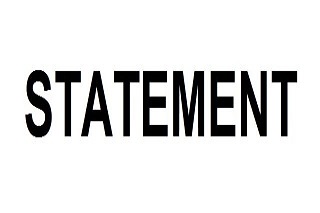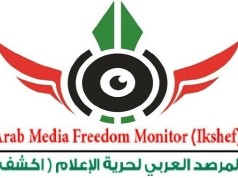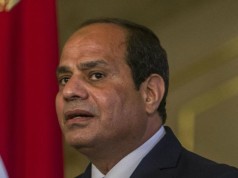
London 03/05/2017
Egypt is witnessing deepening violations of press freedom and imprisonment of journalists, making it one of the most dangerous countries and in the world in which to be a media professional.
On World Press Freedom Day, May 3, 2017, the number of imprisoned Egyptian journalists/photographers stood at almost 100.
Many of them spent periods of pre-trial detention exceeding the maximum ceiling stipulated by law. Some of them are in need of surgical operations and the prison authorities refuse to allow them to attend hospitals outside the prison even at their own expense.
This phenomenon is not limited to ordinary journalists; recently the editor of a popular weekly newspaper, Badr Mohammed Badr, of Afaq Arabia was arrested, and before him the Al-Jazeera journalist Mahmoud Hussein. Former head of Journalists Syndicate, Yahya Qalash, former syndicate’s deputy, Khaled al-Balashi and its former secretary-general and current council member, Gamal Abdel Rahim, were all also sentenced to serve prison terms while they were holding their positions in the syndicate, sending a clear message to journalists and other media professionals, that none of them is immune from persecution and that the authorities are determined to target them, including the leader of the syndicate and the syndicate itself, which was raided by the police a year ago without any legal justification.
World Press Freedom Day also comes in the aftermath of a number of closures of newspapers and media channels following the coup of July 3, 2013. In recent months Al-Fara’een channel was shut down and its owner Tawfiq Okasha banned from appearing on any other channel. Ibrahim Eissa, Amr Laithi and Khaled Talimah received a similar ban.
As part of the continuous efforts to suppress the press, the Egyptian authorities issued a new law regulating media bodies, granting the head of state the right to appoint their chairmen and a section of their members, nullifying the independence guaranteed by the constitution and making the organization a tool for the state. A number of social networking sites which did not meet a series of stringent conditions within a 6 month timeframe were also shutdown.
In addition, violations against journalists, correspondents and photographers while at work have also escalated considerably, both in terms of physical and verbal abuse or denial of coverage. Some have been detained in police stations, and travel and entry bans have become common. Sudanese journalists have become the latest target of such measures. Dismissal from work is on the rise because of the challenges facing newspapers and TV channels due the bad political climate




